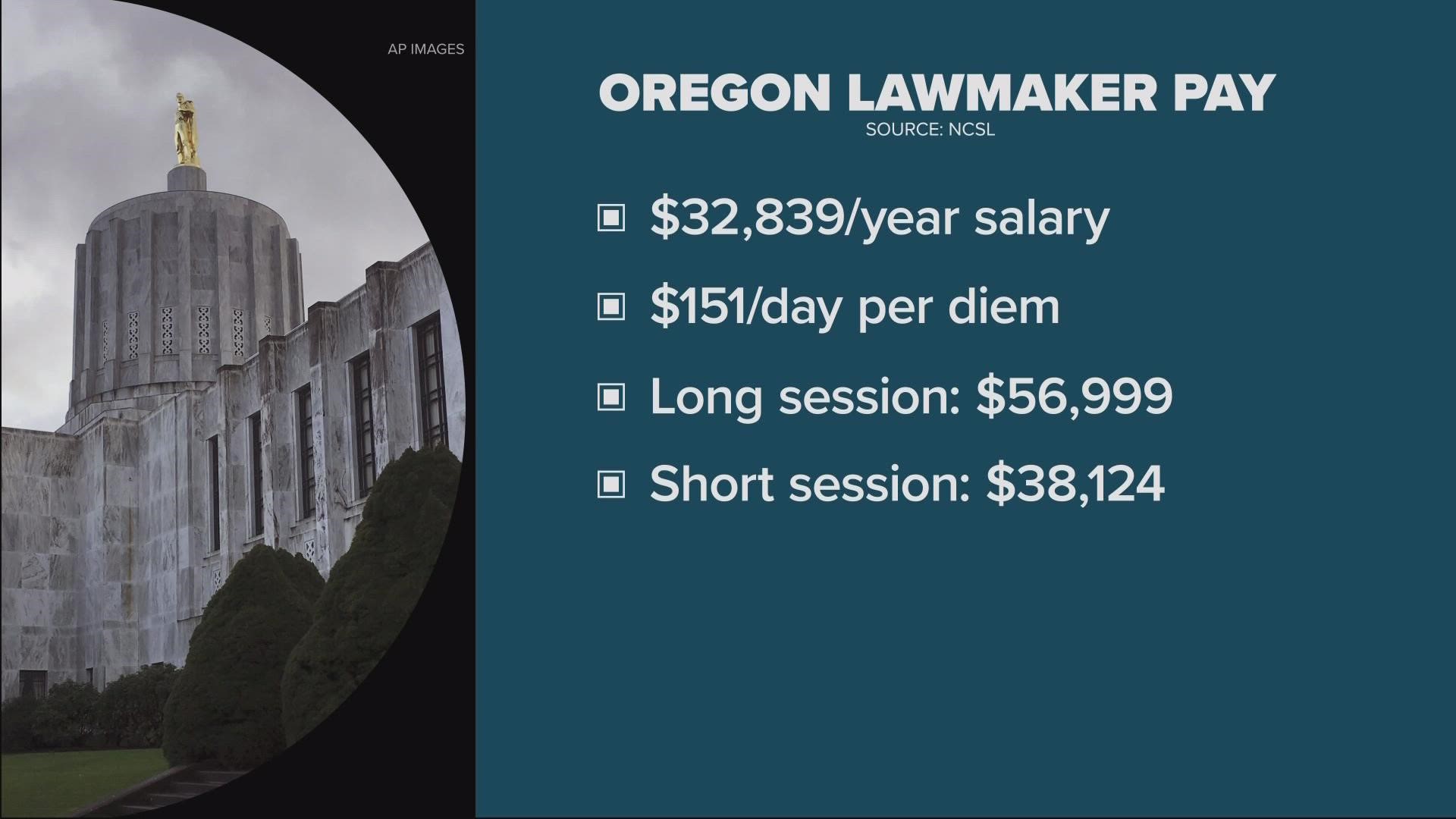SALEM, Ore. — Three state representatives in Oregon have decided to not seek reelection in the fall because they say their "part-time" salaries are too low to support their families.
Our viewers of KGW's "The Story" wanted to know, how much do Oregon lawmakers get paid and how does that compare to other states?
Currently, they get paid a salary of less than $33,000 a year. On top of that, they get a per diem of $151 a day during sessions, which is an allowance to pay for food and living expenses. The reason for that allowance is because most lawmakers don't live in Salem— they have to travel and rent a place to stay.
Including per diem, Oregon lawmakers make $57,000 during 160-day regular sessions, which happen every other year. That's close to the average salary for workers in Oregon. But during 35-day short sessions, they only make about $38,000.
But legislators' compensation varies widely from state to state with a big range of salaries and daily allowances.
In the neighboring state of Washington, lawmakers are paid between $64,000 and $69,000 depending on the session length, and California pays its lawmakers over $165,000 a year — more than any other state.
On the other end of the spectrum, lawmakers in Wyoming make between $5,000 and $10,000 a year depending on the session length.
It's also important to note that lawmakers' schedules are very different in each state as well. In some states, lawmakers are considered "full time" because their sessions run most of the year, and they are paid more as well. California is one of those full-time states.
In other states, lawmakers are considered "part time" as their sessions only last a month or two, and they are paid less.
Oregon and Washington both have a hybrid legislature, meaning they have both regular and short sessions. The National Conference of State Legislatures said lawmakers in these states "typically say that they spend more than two-thirds of a full-time job being legislators."
Rep. Rachel Prusak (D-Tualatin/West Linn) said during sessions, Oregon lawmakers are working 80-hour weeks. She said when you add in special sessions, constituency work, policy work, task forces and overseeing agendas, and it doesn't even come close to part-time.
"Between bills, students loans and two kids in daycare, I've never been able to stop working my second job during session. So I dropped to part time during session for my second job, which means I work all the time ... We can't make ends meet on the legislative salary alone. That wouldn't be financially feasible for us. So it became increasingly clear this public service was not sustainable for my family."
Rep. Prusak along with Rep. Karin Power (D-Milwaukie) and Rep. Anna Williams (D-Hood River), have all said they will serve the remainder of their terms but will not run for reelection in the fall because of the same reason: they don't get paid enough to support their families.
During the short session this year, lawmakers considered a bill that would boost their pay to match the state's average wage. That would bring salaries up to about $63,000, according to legislative analysis.
The bill stalled in committee, but received support from a number of organizations that submitted written testimony, including the ACLU of Oregon, the Oregon Economic Justice Roundtable and Family Forward Oregon, which supports working mothers, caregivers and families.
Visit this website for a breakdown on state lawmakers' wages across the U.S.

